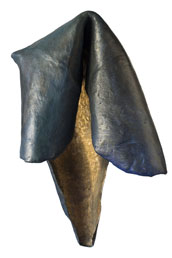Pages: 1 2 3 4 5 6 7 8 9 10 11 12 13 14 15 16 17
Athena Becomes a Swallow
by Brent MacLaine
Fredericton, NB: Gooselane, 2009
90 pp. $18
Goose Lane Editions of Fredericton, NB, has published my work, but I hope that fact does not disqualify me from commenting on Brent MacLaine’s 2009 poetry collection, Athena Becomes a Swallow, for it is a fine homage to Homer’s Odyssey, while giving it a fresh hearing.
The University of Prince Edward Island professor assembles 27 monologues spoken, not by the principal personalities of the tale – Odysseus, Penelope, et al. – but by minor players, thus recapitulating the epic poem as a version of Edgar Lee Master’s Spoon River Anthology (1915).
Master’s characters are dead; they speak from the grave. MacLaine’s cast is living (save for the Underworld haunts), but previously entombed in the muting effect of being accorded few lines or provided only slight description. MacLaine assures us that he is “no classicist nor a speaker of Greek”; so, his project of “imaginatively reconstructing Homeric voices” is indebted, in part, to his consultation of “several translations and editions of The Odyssey.”
But his composition also stems from his supposition that “The Mycenaean characters in Homer’s work were primarily … farmers and fishermen” and thus, in lifestyle and thought, not unlike traditional, Canuck Maritimers. MacLaine senses that East Coasters “show that the rugged coastline of the Atlantic Ocean determines their people’s character just as the Aegean did for Homer’s.”
For this reason, perhaps, the strongest verses are not so much Grecian as they are agricultural. “I was sick to death of pigs – tired of looking / at their bristly skin, their rooting and rutting, / their dredging up the muddy sty….” And so, Elpenor goes to drink: “Such wine! I swear it sparkled twice – once / when I poured it under a waning moon, / and once when it flowed freely down my throat.”
Eyeing glamorous, adulterous Helen, Prince Peisistratos comments, “Disarmed and dumb, how could I criticize / this source of woe – even had I closed my eyes?” The femme fatale’s seductiveness even infuses wine: “after my first sip, / I felt a warm knot in my body’s core. / It spread to each of my extremities like sweetened cream…. / All sadness drifted harmlessly away, like smoke / curling skyward from a shepherd’s hut.”
MacLaine employs vers libre deftly, but he also pens a few sonnets that seem flat. His loosened blank verse – vers libéré – is nicely rambunctious in its iambic lope. Hear Laertes: “I languish on an unfamiliar sea / between the shoals of hope and grief. I should / be bitter as a witch…”
MacLaine’s fidelity to the Homeric style is impressive, but images and ideas that were born startlingly new in The Odyssey may now strike us as cliché. The fine line, “Regrets are darts of punishment,” is followed by the clumsy, time-worn aphorism, “though, in the end, we all are casualties of fate.”
Quibbles aside, Athena Becomes a Swallow is a strong book, which includes apt and attractive art by Maclaine’s own hand. The clear lines are wondrous: “I stayed to marvel at the bruised and briny / skin pocked with sores – it was hard to say / which side of life he was destined for.”





No Comments so far ↓
There are no comments yet...Kick things off by filling out the form below.